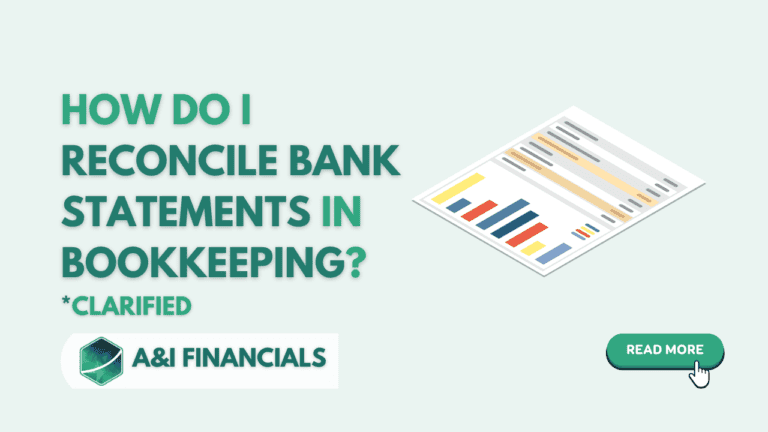What are Bookkeeping Services? Simplified & Detailed For You
Bookkeeping is essential not only to track the financial position of your business entity but also for its regulatory compliance.
Let’s understand what a bookkeeping service does, and how a bookkeeping service benefits your business.
What is a Bookkeeping Service?
Bookkeeping service is the practice of recording and keeping track of financial transactions of your business. The bookkeepers are required to summarize the activity of your business regularly into financial reports. These reports showcase the financial position as well as the performance of your business.
It is the responsibility of a bookkeeper to provide accurate, updated financial data so that the accountants can prepare annual financial reports as well as tax returns for your business.
Besides maintaining financial records, bookkeeping services also include:
- preparing tax returns
- invoicing
- monitoring performance indicators
- cleaning up books of accounts
- maintaining accounts receivable and accounts payable
- reconciling financial statements with bank statements
- undertaking budgeting or cash flow analysis
- management reporting
How Does a Bookkeeping Service Importance Your Business?
One of the most important decisions that you make as a business owner is to hire a bookkeeping service for your small business. There are innumerable benefits of taking bookkeeping services:
- Quick Invoicing
- Ability to Concentrate on Core Operations
- Compliance With Regulatory and Statutory Laws
- Get a Clear View of Your Finances
- Be Prepared for Tax Season
The Benefits of Bookkeeping for Your Business
If you are unsure if bookkeeping is necessary for your business, keep reading. Here you can learn about the specific benefits offered by professional bookkeeping services here.
Help with Accurate Budgeting
Bookkeeping is an important part of any business because it makes budgeting easier. With your expenses and income organized well, it is easy to review your costs and resources.
Your budget is your business’s financial roadmap. When you establish a budget, it’s possible to plan for future expenses for your business, which will help with ongoing growth and success. If your books are not updated, it’s much harder to develop an accurate budget because you are just guessing everything.
Ensure You’re Prepared for Tax Season
While it may be annoying, many businesses must file their taxes at the end of the year. If you ensure proper bookkeeping throughout the year, your financial information will be ready for tax season, and you don’t have to worry about the IRS hounding you.
Easier to Recognize and Meet Business Targets
If you own a business, you want it to grow. However, if you don’t keep up with your financial records well, this may keep this from happening at the speed desired. If you don’t have accurate data or numbers to analyze.
The main reason this is the case is that you will be guessing at everything. Because of this, you will likely be disappointed that you did not hit your prior targets. When you stay on top of your bookkeeping and update financial records often, it’s possible to map out your goals and achieve growth accurately.
Ensures Organized Records
Do you really want to deal with the last-minute stresses of locating an essential piece of business information? This can lead to errors, missed deadlines, and other issues. Regardless of the size of your business, you really can’t afford to make mistakes. Bookkeeping regularly can prevent these issues.
It’s imperative to make it a habit to update your books regularly. Don’t leave this to the last minute. By doing this, you can remain organized. As time passes, it will make it much easier to find the information you need.
Meet Government Regulations
The government is developing new initiatives all the time. Unfortunately, the goal of these is to make things easier for them, not you. One of the most recent is the MTD – Making Tax Digital – an initiative where the government just expects businesses to comply.
With this, your business must do taxes digitally using software and applications. In this situation, you must do your books and have an app to handle your taxes.
If you use the app provided, the process is easier. It can also help you avoid penalties and keep you from having to outsource your bookkeeping needs.
Additional Peace of Mind
When your books are complete and organized, you don’t have to worry about them stressing you out. You can focus on other parts of your business and know that at least this element is taken care of. If your books are unorganized and tax deadlines are coming up, it can cause a lot of stress and panic. If you own a business, the last thing you want to deal with is bookkeeping tasks that are months behind.
Types of Bookkeeping Services
Different businesses need different bookkeeping services. Knowing the many types of services out there helps you pick the best one for handling your money records well.
Manual vs. Automated Bookkeeping
Imagine jotting down every financial deal by hand in a book, a tedious task, right? That’s manual bookkeeping. It’s good on the pocket but gulp a lot of your time, and mistakes are possible.
Now, imagine a quicker, more accurate method — that’s automated bookkeeping. We’re talking about software doing the big job for you, reducing the room for error. It seamlessly meshes with your other business systems and offers real-time info, ultimately saving time and minimizing mistakes.
In-House vs. Outsourced Bookkeeping
When you do bookkeeping in-house, you bring on staff to take care of your company’s financial records. You get direct control and quick access to your financial details, but it can take a toll on your budget because of wages and perks.
Then there’s outsourced bookkeeping. This involves getting outside pros or businesses to handle your bookkeeping. It’s usually cheaper, you get specialized help without the extra expense of hiring full-time. This way, your attention stays on the main parts of your business.
Common Bookkeeping Methods
Various bookkeeping approaches match different business complexities and sizes. Single-entry and double-entry are the main methods. Insight into these methods helps pick the best financial management strategy.
Single-Entry Bookkeeping
In single-entry bookkeeping, each money move labels as either incoming or outgoing. This straightforward method is great for small businesses with only a few transactions. It mainly focuses on cash flow, but it doesn’t paint a full picture of financial status. It is user-friendly, yet it may not satisfy regulatory demands for bigger businesses.
Double-Entry Bookkeeping
Double-entry bookkeeping records every transaction as a debit and a credit, thus ensuring precision and balanced books. This method becomes crucial for larger businesses dealing with complicated transactions. Double-entry offers a comprehensive financial snapshot and simplifies the creation of financial reports and compliance with rules.
Bookkeeping Software
Bookkeeping software is a tool that makes your financial transaction recording easier. It brings handy features like automated actions, instant reports, and connectivity with other business utilities, to your fingertips. Picking the suitable software not only streamlines operations but also minimizes mistakes and gives a clear picture of your company’s fiscal health.
Popular Software Options
Well-Liked Software Choices QuickBooks, Xero, and FreshBooks are hot picks in the bookkeeping software field. QuickBooks is acclaimed for its comprehensive features and user-friendliness.
Xero shines with its stellar cloud-functionality, making distant access a breeze. FreshBooks aligns well with the needs of freelancers and smaller ventures due to its intuitively designed interface. Each of these applications provides varied features suitable for diverse business requirements.
Choosing the Right Software
When it comes to picking bookkeeping software, keep your business size, cost allowance, and unique demands in mind. Prioritize traits like invoice generation, expense surveillance, and payroll checks.
Make sure your selection synchronizes well with other utilities you depend on. Look out for customer aid and learning materials. Trying out a free trial can act as a litmus test for the selected software.
Real-Life Examples and Case Studies
Picture a little shop owner buried under stacks of papers, always fixing mistakes. Then, they start using a computer program to help. Suddenly, everything is easier and faster, and they’re making smarter choices. Now imagine a new company drowning in the same paper chaos. They decide to hire a company to take care of the mess.
Now, the company owners can concentrate on growing their business, while the professionals handle the numbers. The pros even help them get more money to expand! This shows how expert bookkeeping can make running a business smoother, mistakes fewer, and help it grow too.
Common Bookkeeping Mistakes and How to Avoid Them
Missing out on checking bank statements often is a common slip-up. It can cause mismatches and errors that slip under the radar. Resolve this by checking bank statements every month. Also, it’s a bad move to blend personal and business costs. It muddles up your tax paperwork and monetary analysis.
Keep different accounts for your business. Wrongly labeling costs is another typical error. Stick to proper and consistent labels to keep financial reports straight. Finally, putting off bookkeeping jobs leads to messy records. Keep to a set time for bookkeeping updates. Use of a bookkeeping program or bringing in an expert can stop these slip-ups and ensure your finances are handled correctly.
Bookkeeping Services Provided by AnI Financials
At AnI Financials, we provide online custom bookkeeping solutions for your company. We expertly manage income and expenditure tracking, accounts receivable and payable, and bank reconciliations. We always provide financial statement preparation, tax assistance, and cash-based reporting. Offered in different transaction volume packages, we guarantee precise on-time bookkeeping. This lets you concentrate on expanding your business while we affordably keep your financial records in check.
Bookkeeping vs. Accounting
Bookkeeping and accounting, though linked, have unique roles. Bookkeepers handle daily money records, keep track of ledgers, and check records’ precision. It’s the heart of monetary management, focusing on entering and organizing data. Accounting, in contrast, breaks down this data. Accountants create financial reports, run audits, and help with tax planning. As bookkeepers handle daily operations, accountants give strategic advice based on tracked data. Both parts are essential; bookkeeping generates key data, while accounting applies this data to shape business choices and stick to regulations.
Wrap-Up
Getting a grip on different parts of bookkeeping, like its types, techniques, software choices, and how it differs from accounting, is crucial for those running a business. Having a pro handle the books means secure financial data, sticking to regulations, and handy hints pushing business expansion. If you steer clear of usual errors and select a fitting strategy for your venture, you’ll have neat financial logs. This aids you in making choices that boost your business’s triumph.






